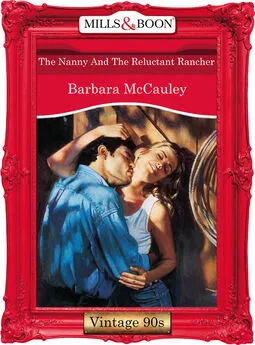Barbara Hambly - Dead water
- Название:Dead water
- Автор:
- Жанр:
- Издательство:неизвестно
- Год:неизвестен
- ISBN:нет данных
- Рейтинг:
- Избранное:Добавить в избранное
-
Отзывы:
-
Ваша оценка:
Barbara Hambly - Dead water краткое содержание
Dead water - читать онлайн бесплатно полную версию (весь текст целиком)
Интервал:
Закладка:
“Who are you?” asked Bobby in the same tone the Patriarch Abraham must have addressed the angels who came calling at his tent.
“Reverend Levi Christmas.” The man shook Bobby's hand, then January's. “Of the Underground Railway.”
Even in New Orleans, January had heard of what was beginning to be called the Underground Railway. In the copies of the Liberator that Mr. Quince had slid beneath the stateroom door he had read a good deal more. It was a loose organization of Abolitionists, Quakers, and some free blacks who worked together to smuggle runaway slaves to freedom in Canada. They passed the fugitives from one household to another, hiding them in barns and false attics and under the raised bottoms of specially-made boats and wagon-boxes, guiding them by night, sometimes hiding them for weeks at a time until chance offered an opportunity for them to slip across the river to Ohio.
Senators like John Calhoun of South Carolina stormed about the responsibility of the United States Government to protect slave-holders' property, and Democratic newspapers denounced the organizers of the Railway as fomenters of slave insurrection and heirs to Nat Turner's bloody schemes. But no politician really dared to go near, or think about—or talk about—the whispers that were rising everywhere in the nation.
“Here.” From a sack in the shed's corner Christmas pulled a couple of slouch hats and two ragged jackets. “Put these on, and follow me. We can keep you hid down Under-The-Hill till the time comes to pass you along.”
Bobby snatched the garments eagerly, but January drew a deep breath and stepped back. “You're going to think me insane, sir,” he said. “And poor-spirited, too. But I cannot forsake my master, who was arrested with me on a false charge. He's not a well man,” he added, seeing Bobby's stunned astonishment at this repudiation of every field-hand's dream. “He needs me.”
An easier explanation, he reflected, than the truth.
The Reverend's single blue eye widened in surprise, then narrowed again. “You think your loyalty is going to remain in his mind the next time he needs a thousand dollars and has nothing to sell but you?” he asked. “You think his family are going to remember your loyalty when he dies, and leaves you to a nephew or a cousin, like an outworn hat? God will look after your master, as He looks after us all, son.”
“You crazy, man!” added Bobby. “You can't trust them from one minute to the next!”
January shook his head. “I'm sorry,” he said. “I can't abandon him.”
The Reverend raised his eyebrows, making the eye-patch bob. “Son, having escaped from the jail, I don't think you understand what will wait for you in this town as a fugitive slave. They don't take kindly to runaways hereabouts.”
“They whip the tar outa you, do they catch you again!”
“I'll be careful.” January took up the empty sack from the floor to hold his jacket and top-hat. It's not even noon yet, he thought, glancing at the angle of the hot yellow splinters of light that fell through the shed's cracks. The Silver Moon can't be leaving this soon. . . .
Christmas sighed. “You're a braver man than I, son.” He held out his hand, callused and hard in January's answering grip, a workingman's hand. No milk-fed seminarian, this one, January thought: here was one of the few people January had encountered who looked like he could actually take on Jubal Cain and maybe win. “But loyalty is one of God's hall-marks, and I'm not going to argue with it, even if I think it's misguided. My only request is that you mention this to no one, not even your master . . . no one . It's astonishing how information spreads along the river, and you know that we of the Underground Railway operate at the risk of our lives.”
This was true, January knew. The slave uprisings of Nat Turner and Denmark Vesey were still fresh in the minds of those who saw black faces outnumber white wherever they turned. There were many in the slave states—and in the North as well—who regarded both the Underground Railway and the Abolitionist movement as encouragement and assistance to another slave uprising. Already there had been instances of retaliatory violence and murder.
“I'll be silent, sir.” January pressed that callused hand again. “You go with God.”
“And you, sir.”
“You, too, Bobby.”
And the young man flashed him a shy grin. “He must be one good master. But I still think you crazy.”
“You change your mind, son,” added Christmas, “you come down to the Stump. It's a tavern at the end of Silver Street, under the hill. They know me there—and they know how to keep their mouths shut.”
January glanced through the shed door to make sure the coast was clear, then stepped out into the hot, hushed morning sunlight. As he crossed the street to make his casual and hopefully inconspicuous way back to the Imperial Hotel, he glanced back. He saw Christmas and Bobby step out and stroll away toward the road that led back down under the hill. Bobby followed behind, like a respectful servant should—the way January was careful to follow behind Hannibal. He prayed the boy would get to safety.
Nobody molested him on his way back to the hotel. Even in the shabby jacket he'd gotten from Christmas he was sufficiently respectable-looking not to cause comment, and there were plenty of other black men, slaves or free, on the streets. At least, he reflected, Weems and Fischer would be well and truly gone from the hotel by this time. He tried not to hurry his steps, but he wondered what he would do if the trunks had been taken inside already. Try to talk his way in as Mr. Weems's manservant? An employee of the steamboat company would be a better ruse. An irregularity, a mix-up of trunk lables, We have to make sure this isn't Mrs. Johnson's that was taken off by mistake . . . . Would they believe that? I just need a quick look inside; Mrs. Johnson's given us a list of the things that should be there . . . .
Then at least he could get word back to Rose about how things stood, and see how much time he had before the boat left. Surely they wouldn't leave with such respectable gentlemen as Roberson and Davis ashore having a visit with friends and family.
January turned down the side-street to the Imperial's rear yard just as a dray emerged from the gate, driven by a couple of sulky bearded men in slouched hats. As January passed it, wondering if he could manage to pick the locks on the trunk if he did find them still in the yard and unobserved, he saw, under the canvas covering thrown over the dray's load, the glint of brass trunk-corners and the dull greenish leather that was instantly recognizable.
Heading back for the boat, he thought sourly. So the whole thing was a ruse after all, designed to smoke out pursuers. Designed, in fact, to stop us here, to lure us ashore where we could be dealt with. . . .
But in that case, why pay to have bogus chests taken back on board?
Or are they going elsewhere? To some house or receiving-office in Natchez? Did Weems and Fischer actually intend to stay for a time, until they recognized Hannibal?
January trailed the cart down Silver Street, and into the criss-crossed mangle of alleyways that spread along the feet of the bluff. Due to the lowness of the river the streets were fairly firm, but in high water at least a quarter of the buildings, to judge by the height of the stilts on which they stood, must flood. Crazy lines of duckboards zig-zagged among the sheds and shacks, and rude stairways ascended walls or rises of the ground. Mosquitoes hummed everywhere under the shadows of the houses, where weeds grew rank in standing puddles.
The dray was definitely not going back to the boat.
January recalled Mrs. Fischer's sharply intelligent dark glance, and the cool command in her voice. You're not touching a dime . . . .
He could easily imagine her as at home in Natchez-Under as she was in the Ladies' Parlor, sympathizing with Mrs. Tredgold about the proper methods of disciplining children.
He hung back as far as he could behind the dray, and thanked God that the blistering heat seemed to be keeping most of the troublemakers indoors. A couple of the black whores, and one who might have been Cuban or Mexican, called out to him from their windows, but he only smiled and waved and shook his head, and tried to look as unobtrusive as possible. Toward the end of Silver Street the ground grew sodden: here the river had cut in behind the last of the buildings and the ground sloped down to a sticky morass of dessicated gray weeds and puddles teeming with crawfish and gnats. On the edge of this slough, the buildings all stood on stilts, and the farthest out—whose rickety gallery was occupied by half a dozen drinkers spitting tobacco down into the water—was reached by a crazy plank gangway that stretched from its door to terra firma. Beneath it the shore currents surged sluggishly around the pilings that held it up, and little drifts of leaves, tree-branches, and what looked like the dead body of a British sailor snagged up against them, to provide footing for legions of rats.
Before this crooked gangway the dray drew rein, and January saw next to the gangway a roughly painted sign announcing the building to be the Stump.
And the man waiting for the dray at the bottom of the gangway, with an ax and pry-bar in hand, was none other than the Reverend Levi Christmas.

EIGHT
It took the Reverend two whacks of the ax to open the trunk. He and the drivers didn't even bother to carry it indoors.
“Piss on it,” said the Reverend, and drove his ax-blade into the ground so he could momentarily remove the cigar from his mouth. “Fuckin' bricks.”
“Fuck me.” The driver scratched his head—not in puzzlement, but with the air of a man who has good reason to do so.
From where he watched, crouched behind a tangle of weed and hackberry under the stilts of a near-by shack and up to his insteps in rank-smelling seepage—January could see that the trunk did indeed contain bricks.
A flash of pink on the gangway behind him made the Reverend whirl, and like a panther he bounded to intercept the dainty form that tried to scurry past him. He caught her by the wrist and dragged her to the dray with such violence that her stylish hat tumbled from her head, but January had already recognized the frock, with its ruffles of blond lace and its bunches of silk roses on the sleeves.
“You been diddled, you little spunk-bait! You and that toss-pot Irish boat-driver of yours!”
“Piss on you!” retorted Miss Skippen, trying to pull her wrist from the Reverend's iron grasp. “Molloy said they'd stole money and was takin' it north! He said he knew the man from seein' him at the bank! This has got to be a trick!”
“Of course it's a trick, you brainless slut! Didn't you think of that when you come here all full of how there's two trunks of money comin' ashore? My God, of all the stupid cunnies I've had to do with, you're the stupidest! But if you think this pays me off for what you owe me . . .”
January backed slowly up the alley, keeping to the cover of the snagged-up deadfalls and the rough stands of brush. At higher water one would have needed a boat to get to the back of the Stump, but now only ten or twelve yards of knee-deep brown river separated it from the muddy shore. A broken-down gallery sagged at its rear, to which a ladder led up, its feet propped in the shallows. The single window was boarded up.
Читать дальшеИнтервал:
Закладка:








